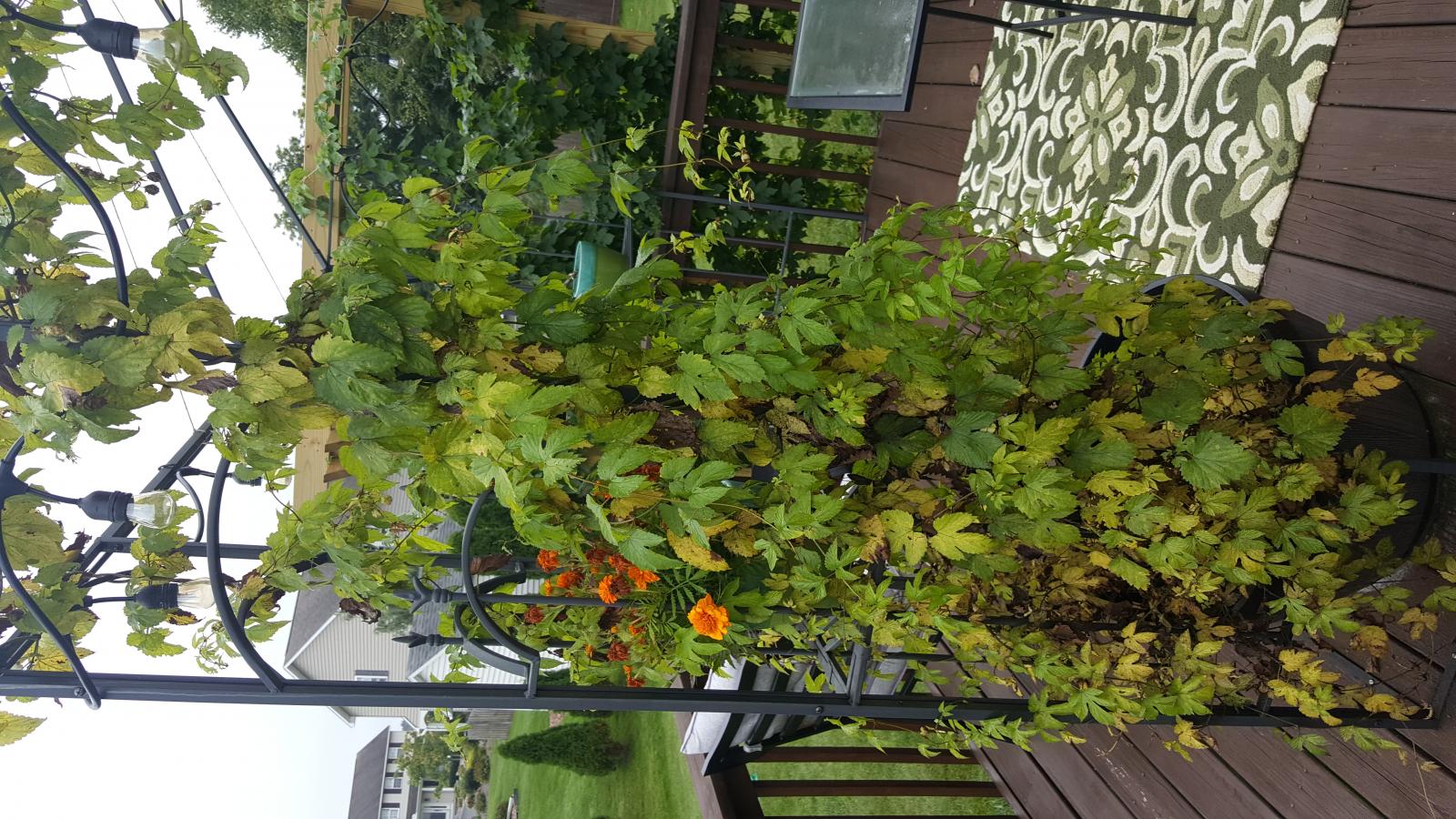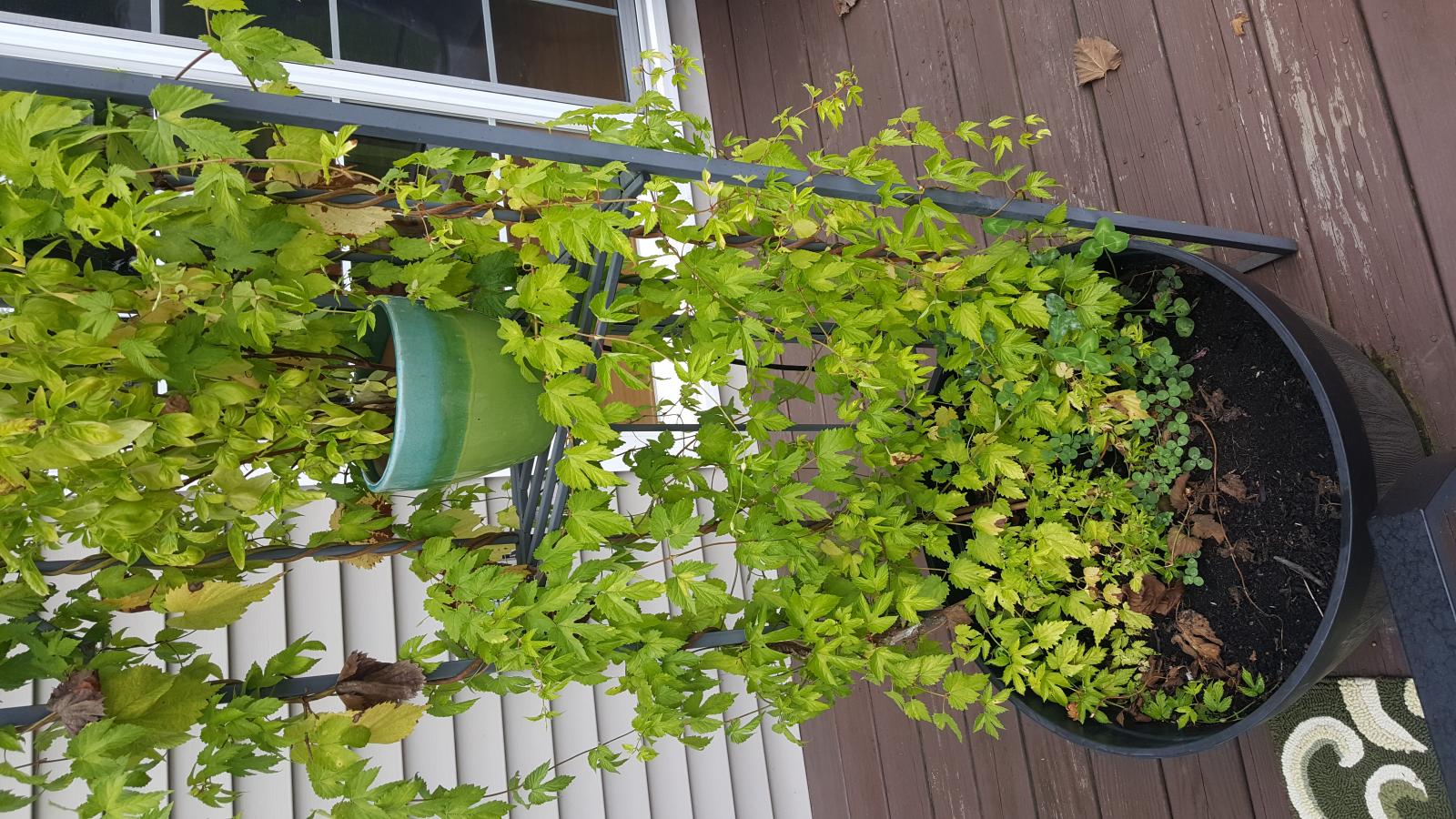samandbekah
Well-Known Member
Hi everyone,
Recently harvested my centennial plants growing in a barrel on my deck. 1st year plants (from crowns) and got a decent yield.
My wife really likes the look of the plants as decoration so I left them up and only plucked the hop cones.
Hops came out great, yielded about a half lb dried however a little worried about the look of this plant currently... I am not sure if this is common or if its just the plant preparing to go dormant for the winter or not bit it does have a sticky like appearance to the leaves and bines. Wondering if it developed some sort of illness and worried about it for next year...
We live in Upstate NY and the fall is here but the days are still warm. Been in the 80s and Sunny all week. Nights are cool however.
Anyone have any ideas? Pics below:





Recently harvested my centennial plants growing in a barrel on my deck. 1st year plants (from crowns) and got a decent yield.
My wife really likes the look of the plants as decoration so I left them up and only plucked the hop cones.
Hops came out great, yielded about a half lb dried however a little worried about the look of this plant currently... I am not sure if this is common or if its just the plant preparing to go dormant for the winter or not bit it does have a sticky like appearance to the leaves and bines. Wondering if it developed some sort of illness and worried about it for next year...
We live in Upstate NY and the fall is here but the days are still warm. Been in the 80s and Sunny all week. Nights are cool however.
Anyone have any ideas? Pics below:







